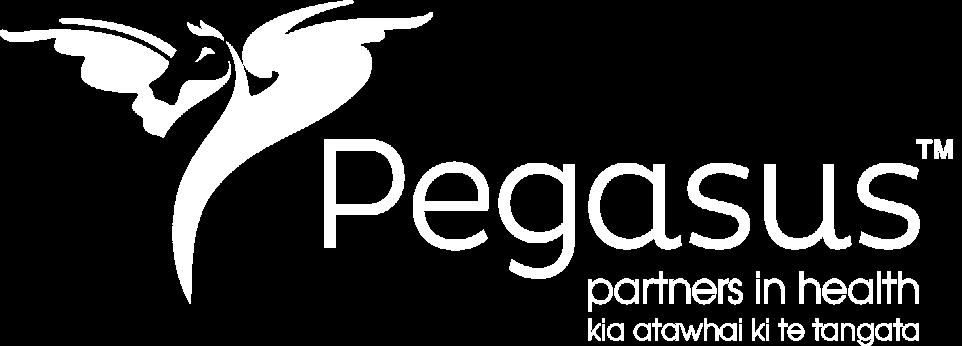Tōtara Pegasus Health Pānui
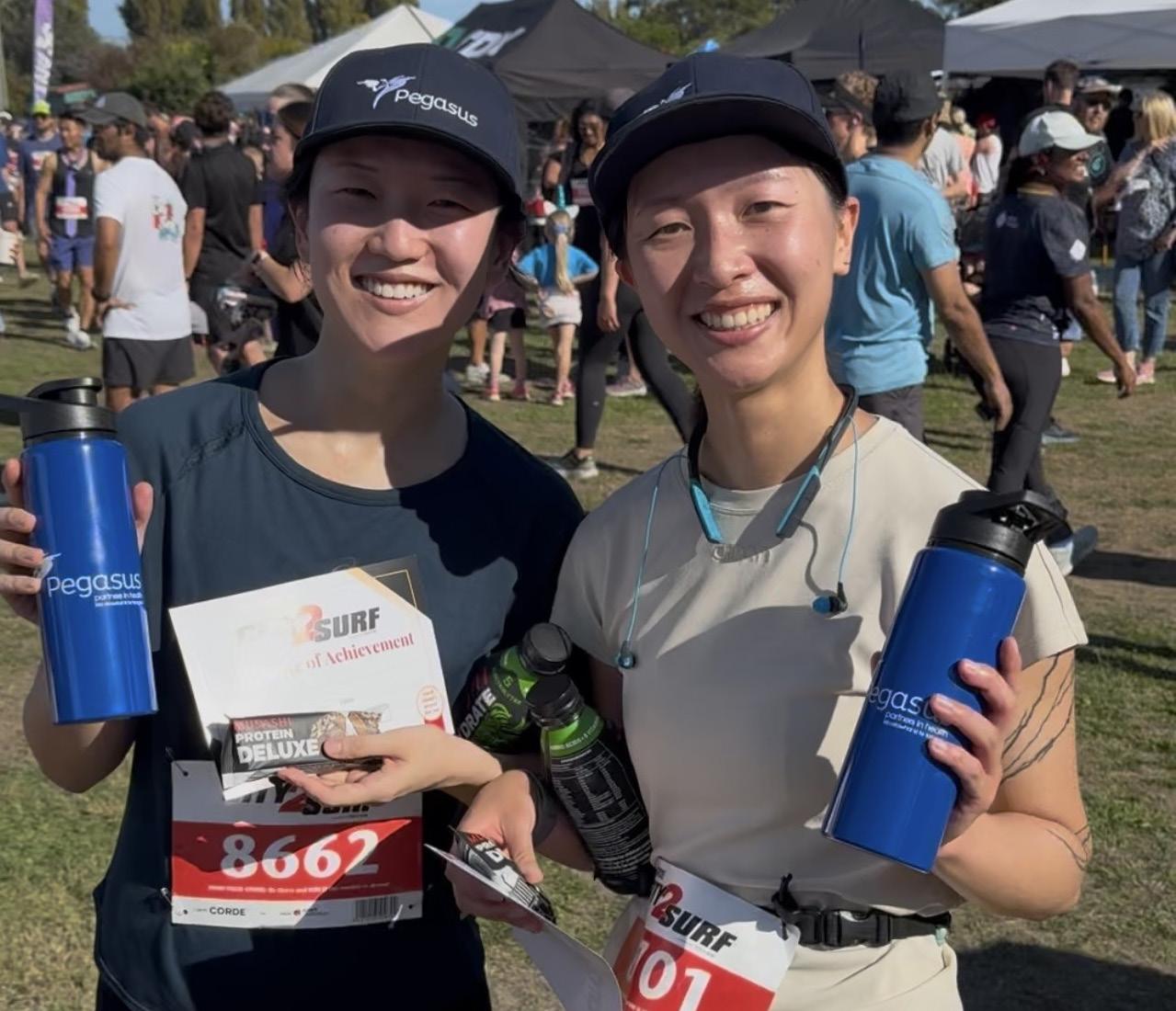

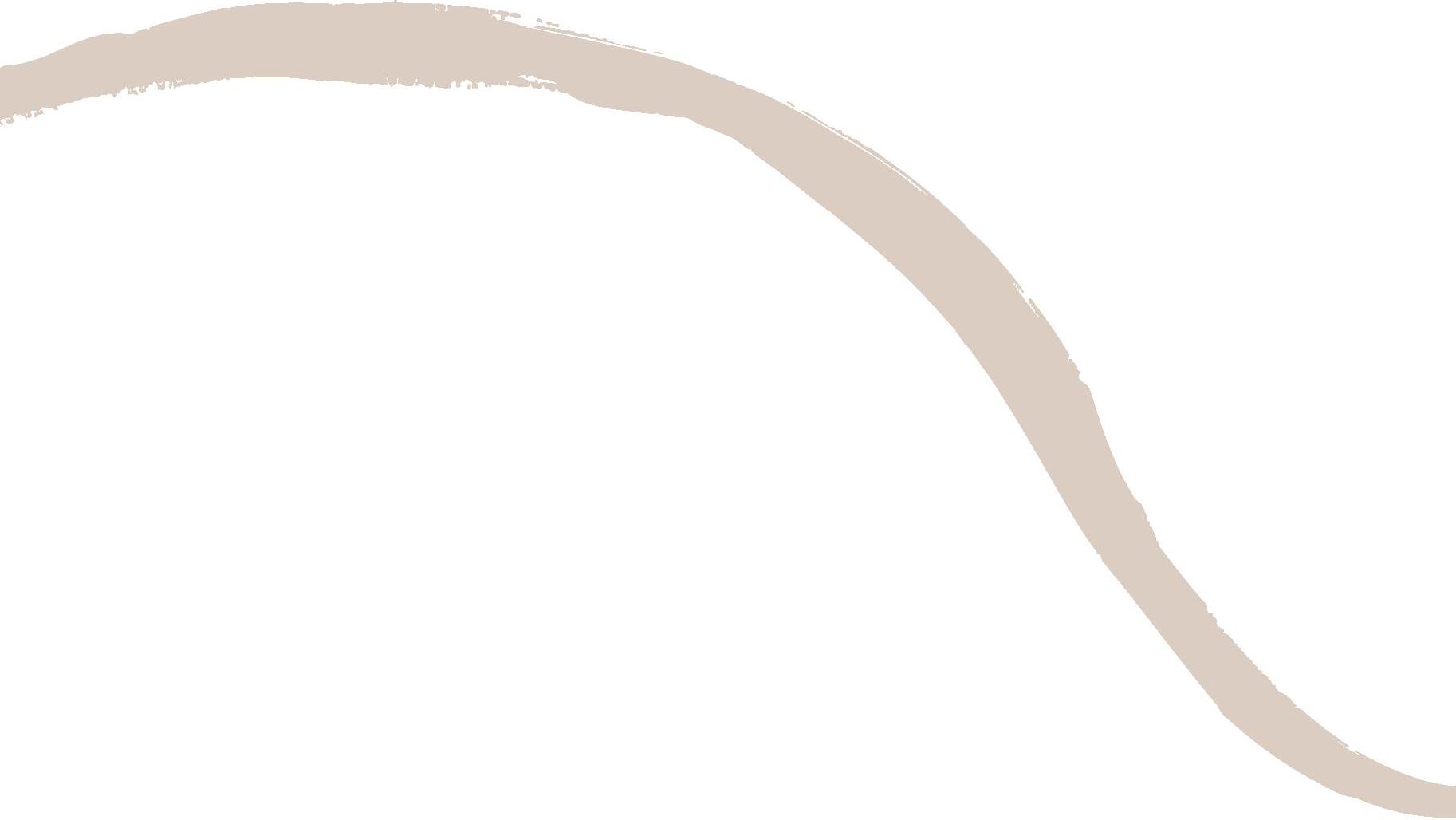
Paenga-whāwhā | April 2025
Putanga | Issue 06





Paenga-whāwhā | April 2025
Putanga | Issue 06

Pegasus House stands on land that was previously a dense Tōtara forest. Tōtara is a name that honours our home’s past. Just like the Tōtara tree that thrives in the forest, soaring towards the sky and Ranginui, we create this newsletter with the aim of highlighting excellence in primary care and to support others to similarly flourish and strengthen.
Each issue of Tōtara Pegasus Health Pānui features stories, interviews, and new initiatives from across Waitaha Canterbury.
If you have a story, you would like our team to cover, please email communication@pegasus.health.nz
Tōtara Pegasus Health Pānui is produced by the Communications Team at Pegasus Health. Content within Tōtara Pegasus Health Pānui has been included with the approval of content providers. If you wish to reproduce, alter, or transmit any of the information or images contained within, please contact communication@pegasus.org.nz.
Pegasus Health (Charitable) Ltd is one of the Aotearoa New Zealand’s largest and most progressive PHOs and practice networks, supporting general practice in Waitaha Canterbury and the health system throughout the South Island.
At our core we exist to support practices – and through this to help provide better health outcomes to people living in Waitaha.
Our purpose is by 2030, the health outcomes for people in our takiwā have improved substantially with a
significant reduction in inequities in access and outcomes.
Our values of Inclusive, Strive, Connection, and Integrity, are underpinned by our guiding principle of Manaakitanga, to create the fabric of our ways of being as an organisation.
Pegasus has a commitment to ensure that we overtly, purposefully, and strategically thread equity and Te Tiriti o Waitangi through all we do and how we operate.
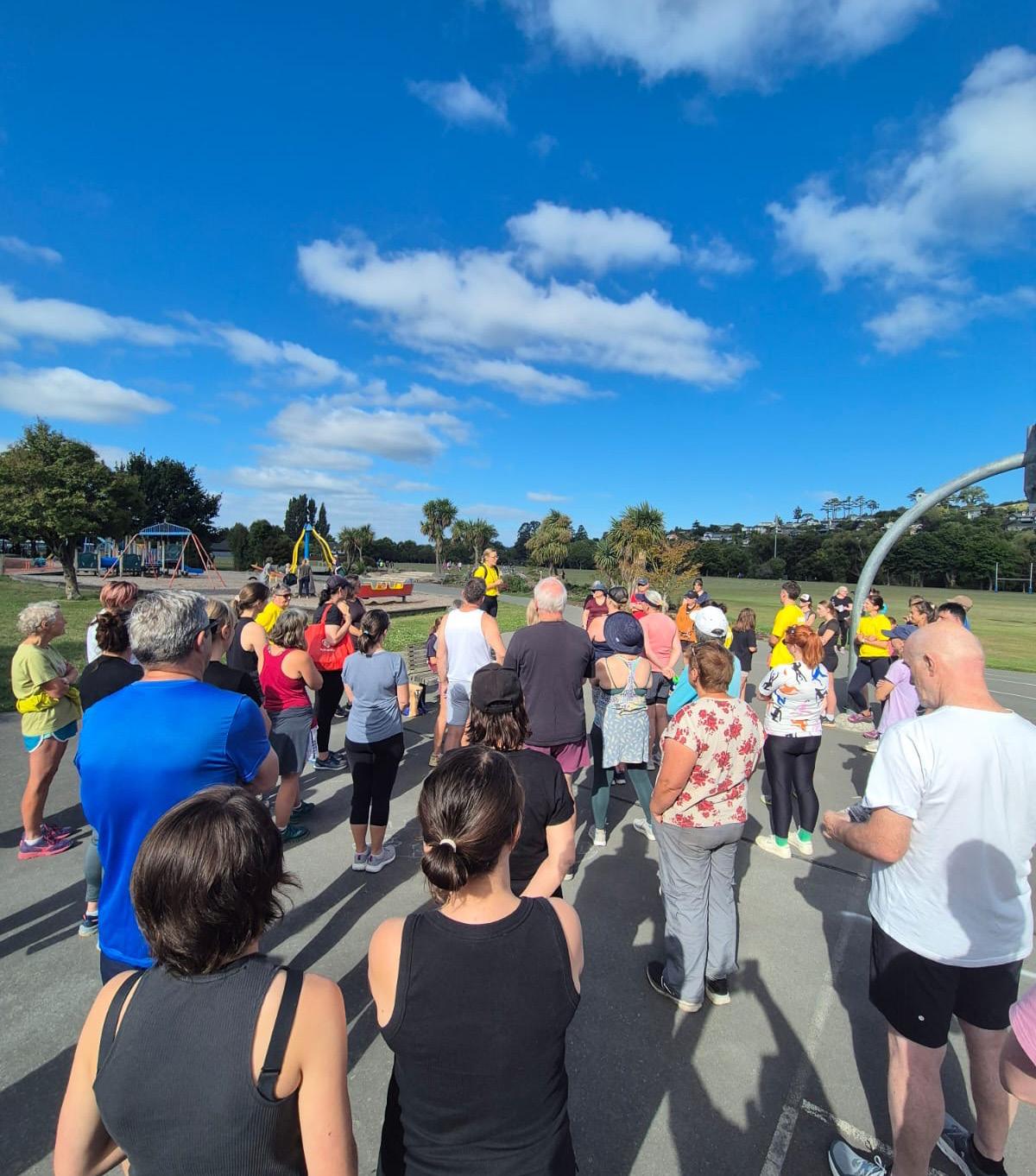
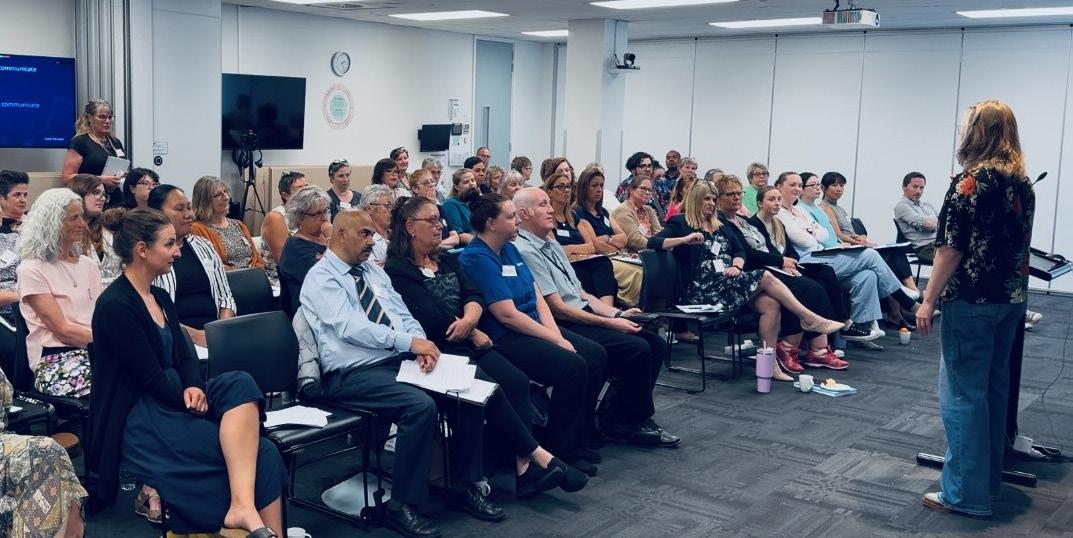
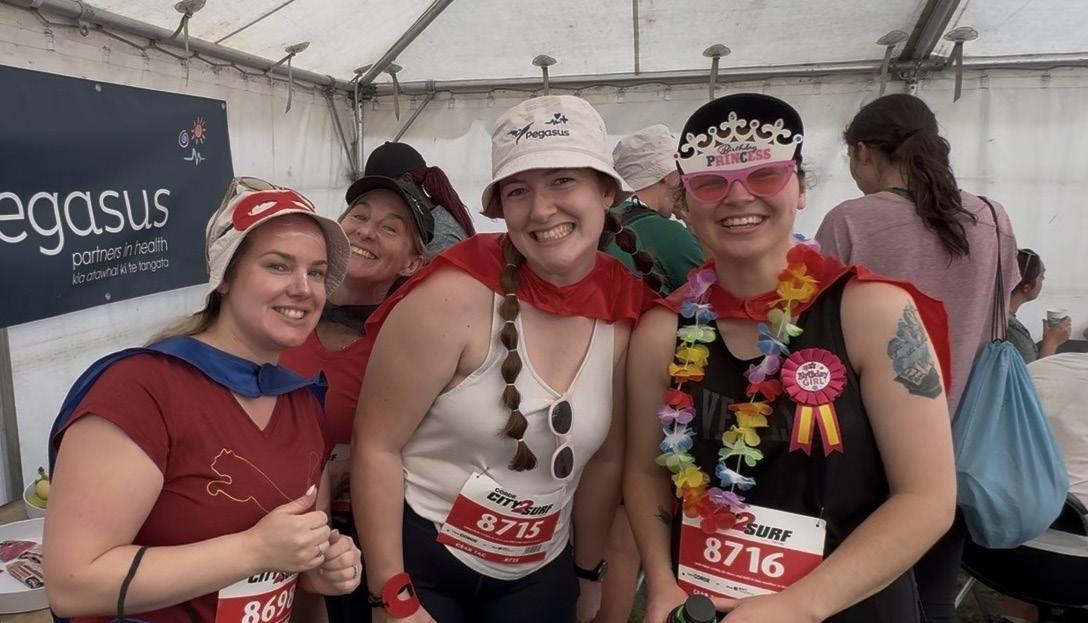
Kia ora koutou,
It was a pleasure to see many of you at this year’s City2Surf. Events like these are always a great opportunity to step outside our usual workspaces and connect with one another and participate in some physical activity.
Last month, we hosted Minister of Health, Simeon Brown, at Pegasus, with a key focus on the 24 Hour Surgery and Acute Demand Management Service. His visit follows recent announcements aimed at improving access to primary care and strengthening the general practice workforce. These conversations are a valuable way to highlight the vital role of primary care and demonstrate how our network contributes to the health system and national health targets, which is highlighted throughout this pānui.
This edition of Tōtara is a celebration of achievements, fresh thinking, and a collaborative approach that drives improvement of access and equity across our communities. A great example of this is the team at Woodham Road, who recently achieved their Hikitia accreditation. Their work to improve portal access, strengthen shared care planning, and enhance engagement with new mothers is commendable, and it’s great to see them now striving to improve immunisation rates.
A key priority for Pegasus is reaching 90% immunisation coverage for 24-month-olds by 30 June 2025. It’s encouraging to see steady improvements, including for Māori, and I want to acknowledge the huge
efforts of practices in this important mahi.
Lyttelton Medical Centre shares their proactive approach to supporting immunisation uptake, an inspiring example of teamwork making a real difference.
March is also Glaucoma Awareness Month, highlighting the importance of early detection for this leading cause of irreversible blindness. In this issue, Pegasus Health Refugee Health Clinical Lead, Sahra Ahmed, shares her powerful story of living with glaucoma, genetics, and embracing life.
I encourage you to take a moment to read her story, and the many others showcasing the incredible mahi across our network. Thank you for all you do.
Ngā mihi nui,
Kim Sinclair-Morris Manukura | CEO Pegasus Health (Charitable) Ltd.
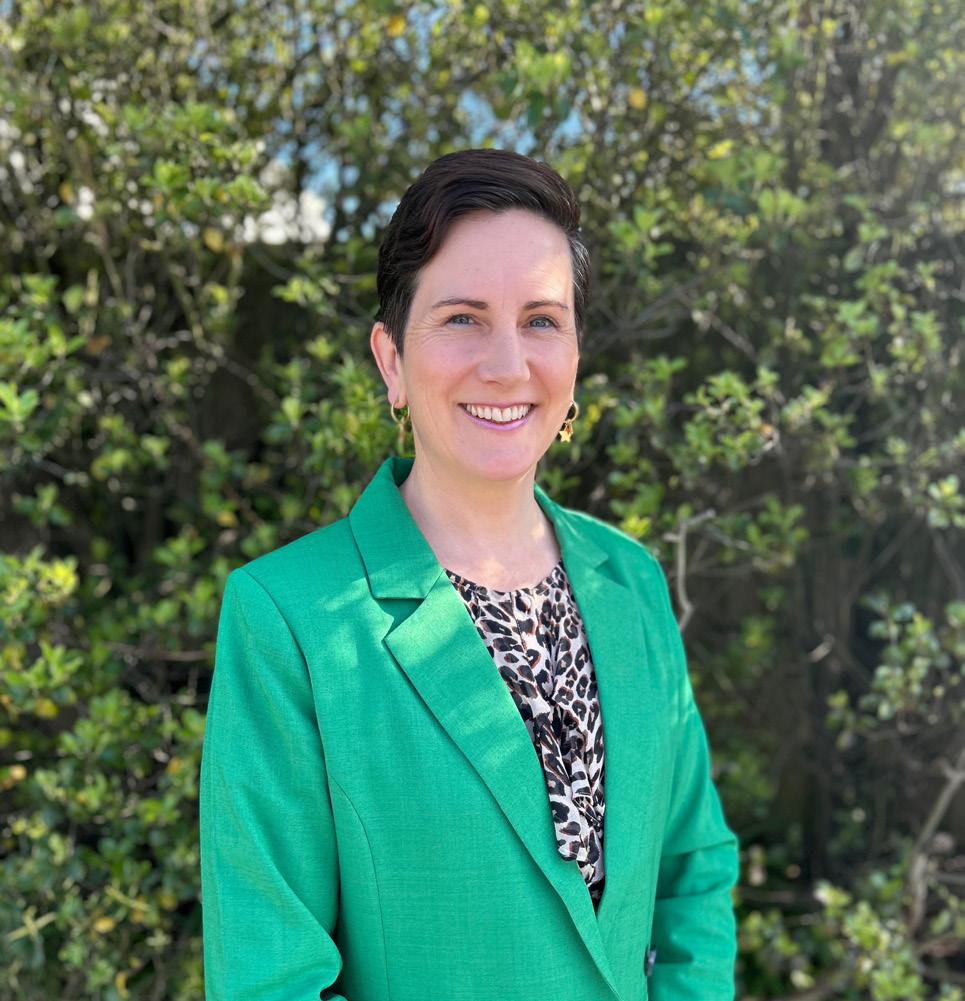
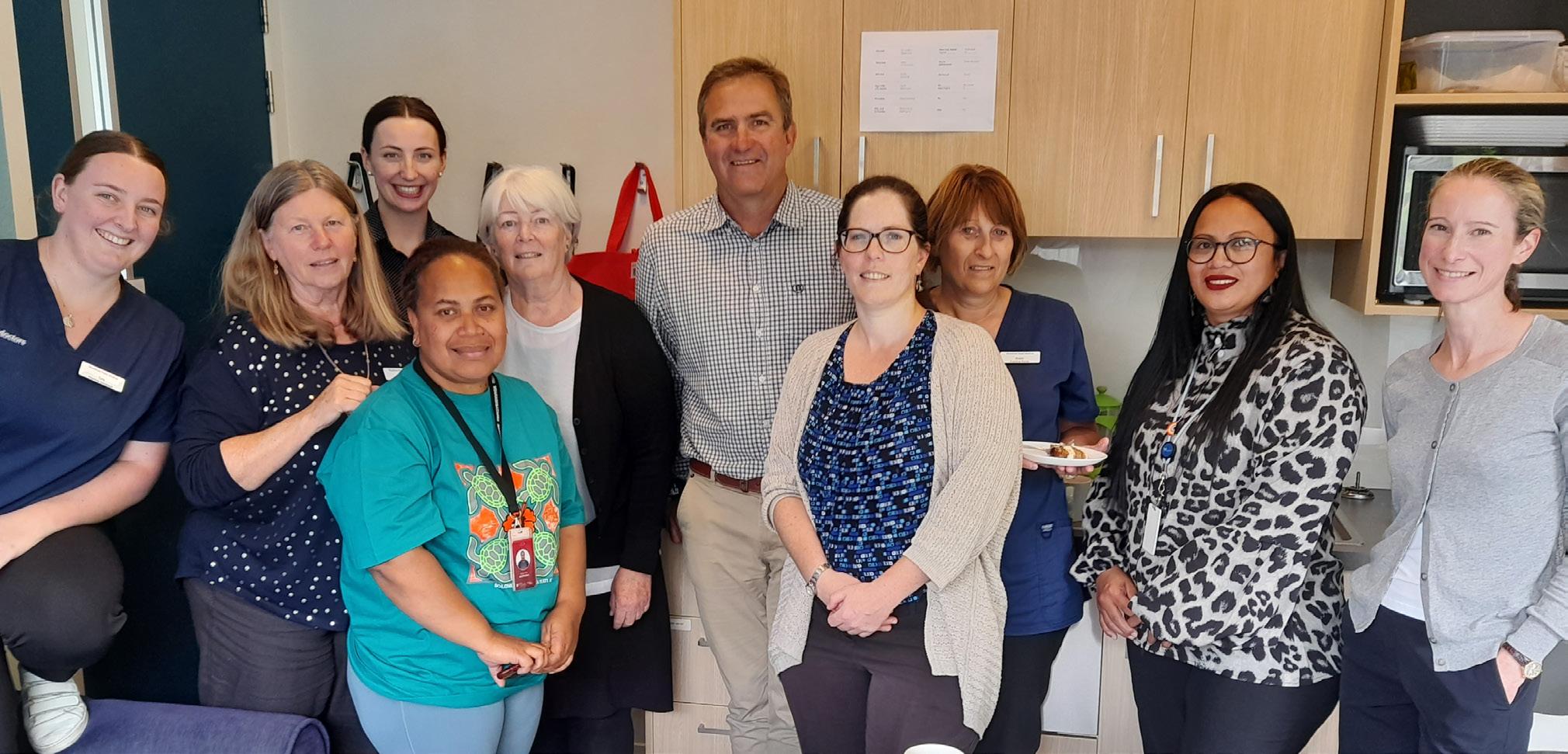
For the team at Woodham Road Medical Centre, achieving Hikitia accreditation in December 2024 wasn’t just about meeting a standard, it was about growing together, improving systems, and ensuring the best outcomes for their patients.
“Achieving Hikita was confirmation that we’re providing a high-quality service and ‘lifting up’ our patients to achieve the best outcomes possible,” Lead Nurse, Lynette Sheppard, said.
The accreditation followed a year of reassessing every aspect of the practice. In 2024, the team completed Foundation and Cornerstone accreditations, using the data to drive further improvements.
“We wanted to make our practice as efficient as possible and deliver excellence in outcomes,” Lynette said. “Hikitia kept us focused and improved communication.”
A key challenge was the lack of clinical space for nurses.
“Through collaboration with operational management, we developed a plan for a new space, which is now underway,” Lynette said.
Patient care has also transformed. The practice has streamlined portal access, enhanced shared care planning, strengthened engagement with new mothers, and are now striving to improve immunisation rates. While some of these changes might not be immediately visible to patients, they are driving real improvements in care.
Reflecting on their journey, the team encourages others to embrace Hikitia.
“It’s been practice-changing. We’ve empowered staff, improved patient access, and set ourselves up to fly. Bringing everyone along sparks great ideas, drives innovation, and ensures shared success,” Practice Manager, Andrea Lawson, said.
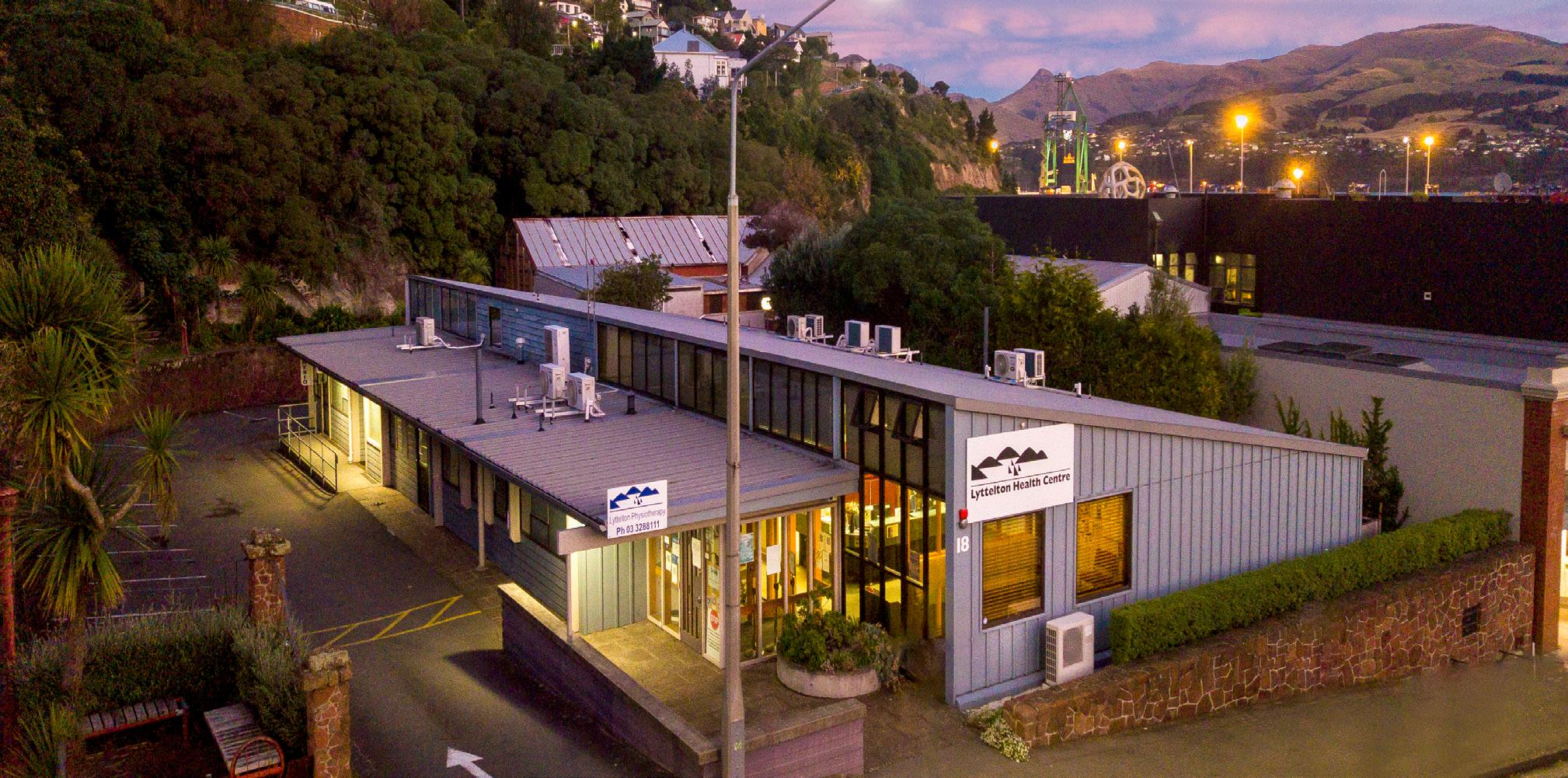
At Lyttelton Health Centre, welcoming a new baby is more than a routine process, it’s an opportunity to support families and ensure their little ones get off to the best start.
Upon receiving a Maternity Birth Summary, the reception team sends out a welcome-to-baby card, enrolment form, and personalised welcome letter. The administration team then creates a preliminary enrolment for the baby, automatically triggering recalls for immunisations. If the enrolment is not completed by six weeks, nurses are alerted to follow up, ensuring no child misses crucial early vaccinations.
Accurate information is essential. The team verifies addresses against the National Health Index (NHI) database, preventing discrepancies and maintaining trusted communication with families.
“Our admin team takes great pride in being the first to extend a warm
welcome to each new baby via our welcome letter and personalised card,” Lyttelton Health Center Admin Team Leader, Kathie Jackson, said. “By streamlining the enrolment process that then creates recalls for immunisations, we help ensure no child misses out on their early vaccinations.”
One recent improvement is the introduction of gender-neutral welcome cards, which acknowledges gender identity isn’t always determined at birth and respects the wishes of all families.
Achieving 90% immunisation coverage for 24-month-olds by 30 June 2025 is a key priority for Pegasus Health. With immunisation rates steadily improving, proactive enrolment and the continued efforts of practices like Lyttelton Health Centre play a crucial role in reaching this goal.
St Martins Medical Practice has wrapped up the second year of its “Thrive to 5K” initiative, designed to support patients in building healthier habits through movement and community. Inspired by the Couch to 5k model, Dr Lizzie Loudon—a strong advocate for Lifestyle Medicine— adapted the idea into an 8-week programme focused on gradual progress and long-term wellbeing.
Whether running or walking, Thrive to 5K was built to be inclusive, encouraging people of all fitness levels to get active. The focus wasn’t weight loss—it was about building sustainable habits, improving overall wellbeing, and creating community connection. Feedback forms and health assessments helped track the impact, and the group worked towards completing a local Parkrun to celebrate their progress.
“To be able to run alongside our patients, human to human, shows we are also motivated to improve our health and creates a different level of connection,” Dr Loudon said.
This year, the 8-week plan was shared by email with the whole practice, opening up the opportunity to
more people, even if they couldn’t join the group sessions. Weekly encouragement emails shared tips on staying motivated, injury prevention, and the mental and physical benefits of exercise.
This approach has helped establish long-term exercise habits, with participants forming their own Cheetah’s 5K running club which has been running every Tuesday since the first Thrive to 5k a year ago.
“There are three ladies, that did the City2Surf 12km run this year, who started with our Thrive to 5K last year, and carried on with the Cheetah’s club. They said to me that if I’d told them last year, they were going to run 12K, they would have never believed me,” Dr Loudon said.
Ninety patients aged 6 to 65 joined this year, alongside 12 staff and their children.
Dr Loudon thanks all the St Martins Medical team members who got behind this initiative, especially Louise Tapper (OT) for her support in developing the initiative and Natasha Wilson for her assistance with logistics.
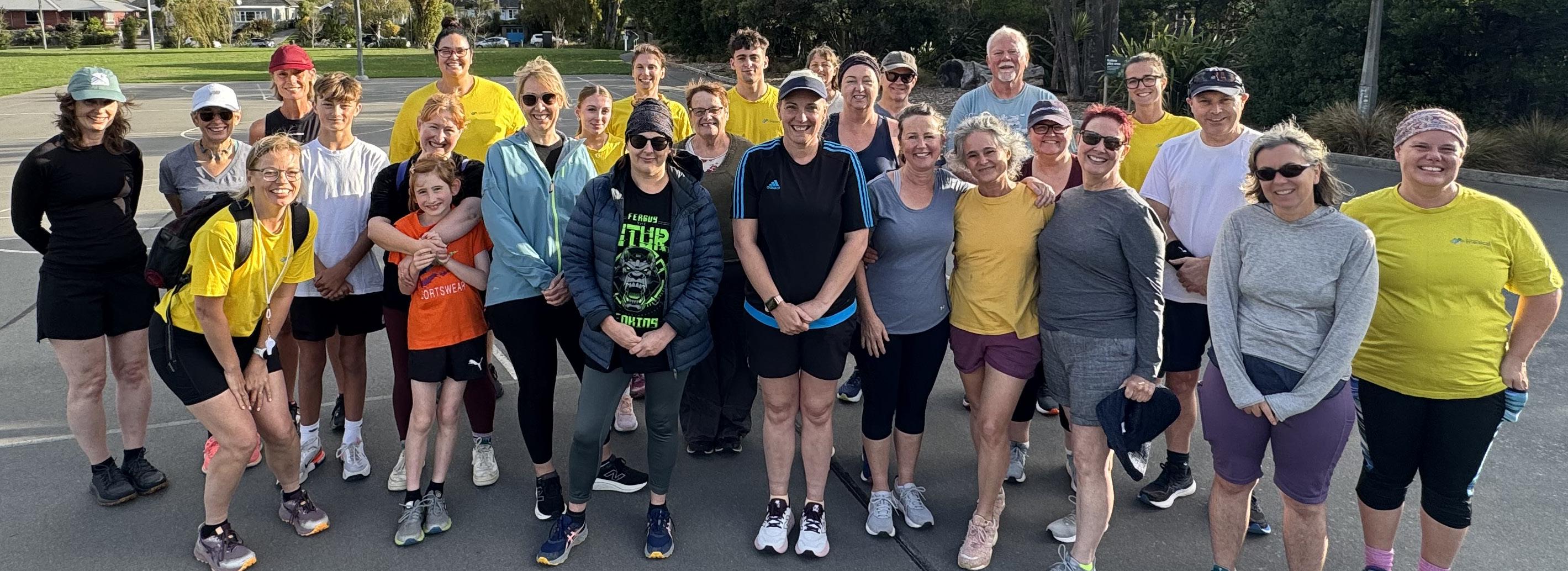
Pegasus Health general practice teams and staff participated in the annual City2Surf fun run on Sunday, 16 March.
This event is always an excellent opportunity for general practice
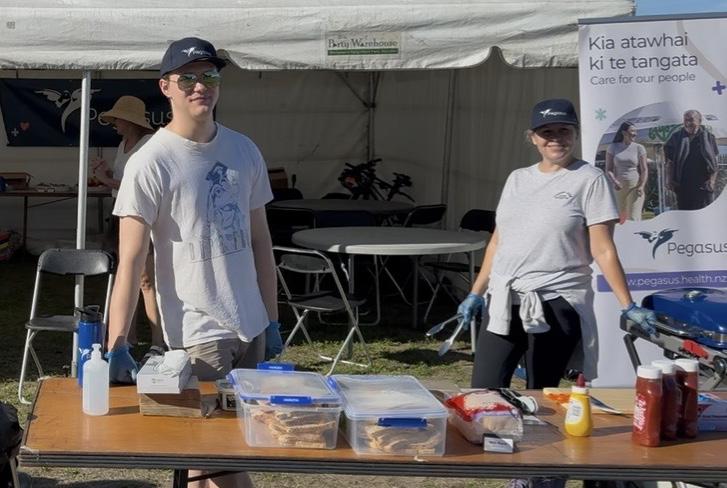
teams to connect with each other, enjoy the sunshine, and celebrate together at the finish line.
City2Surf continues to be a highlight on the calendar, and we look forward to participating again next year.
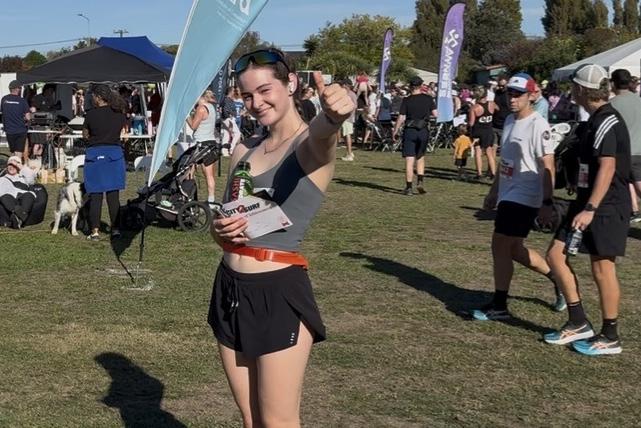
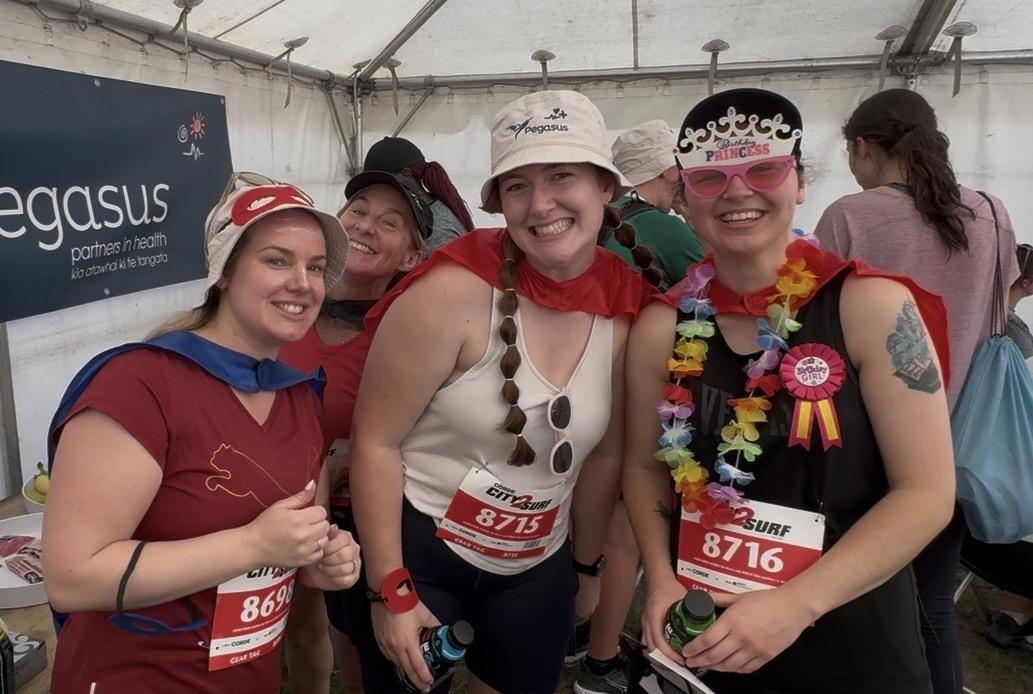
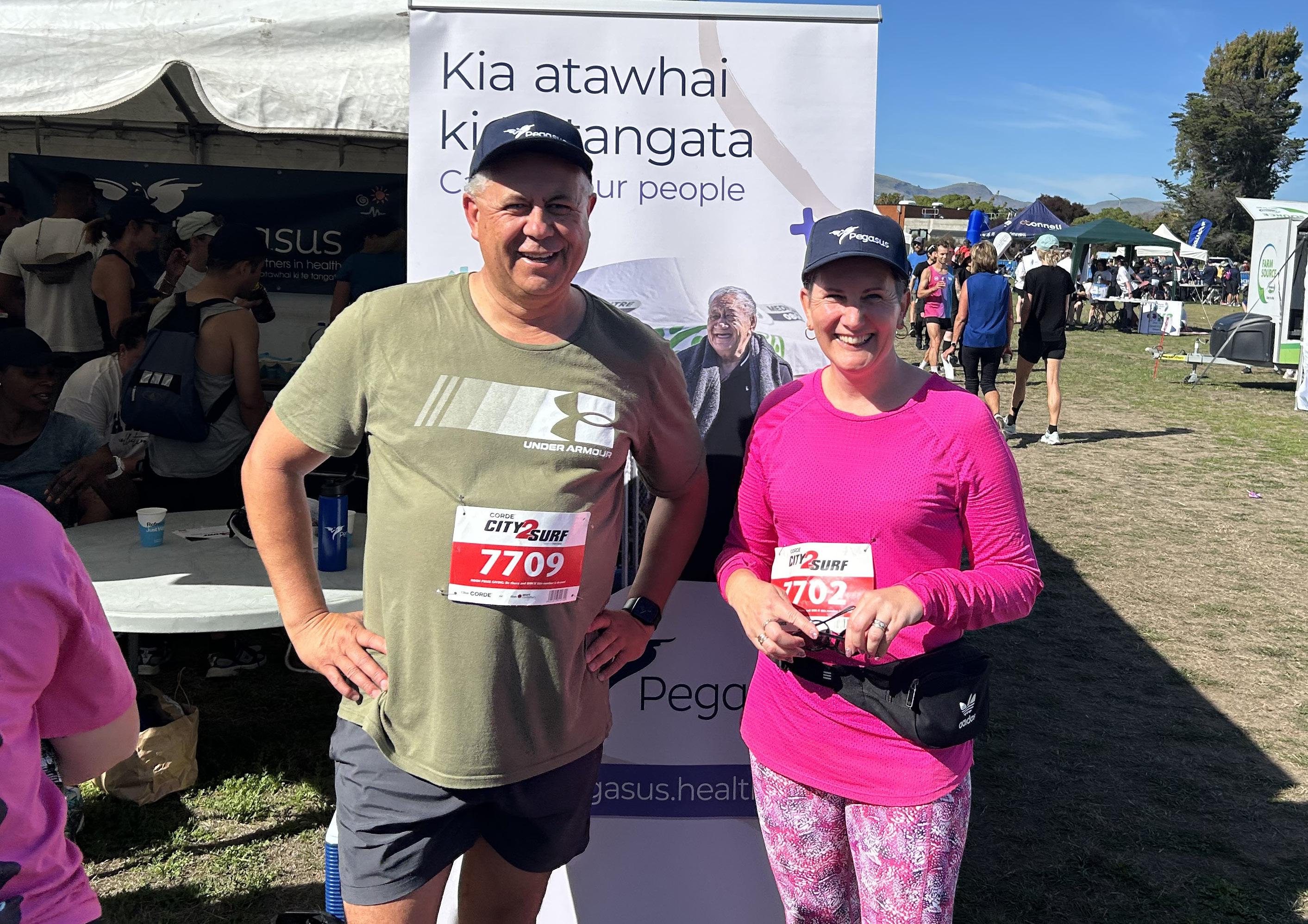
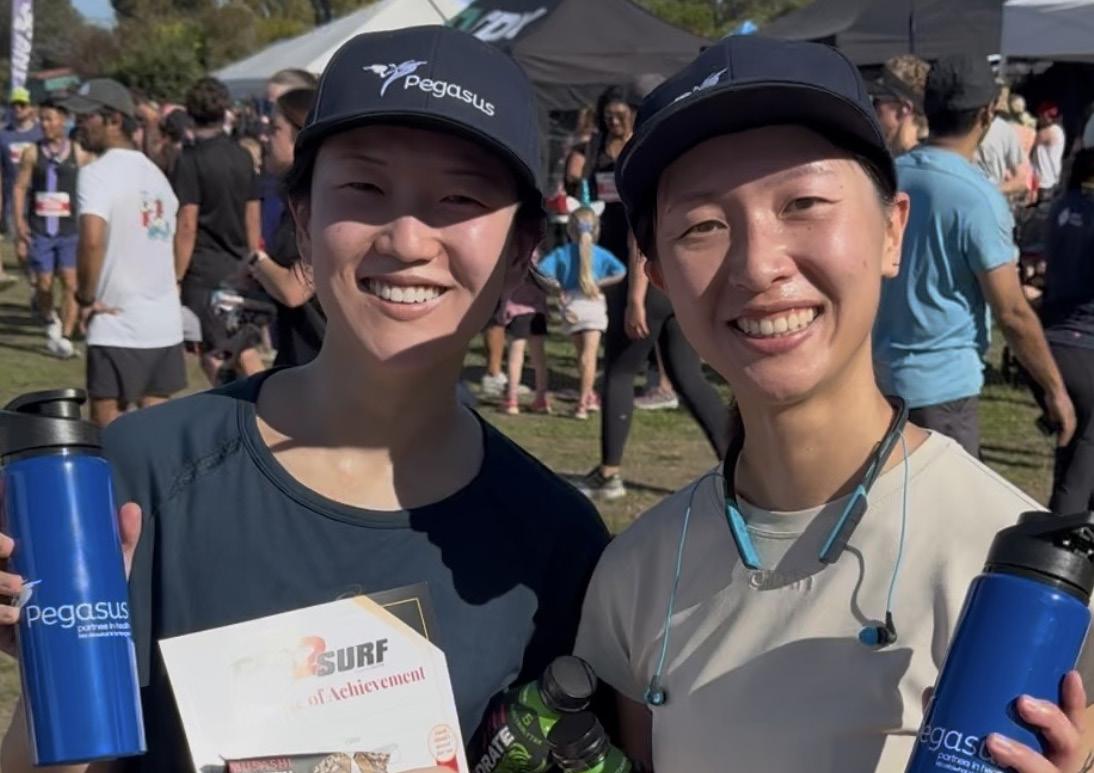
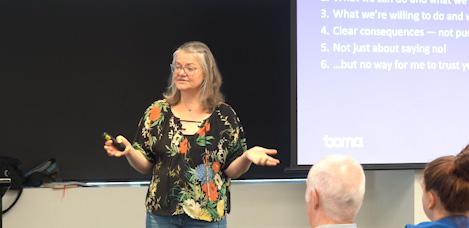
Pegasus Health, Waitaha Primary Health, Christchurch PHO, and South Canterbury are working together to improve access to primary care by supporting the people at the front line — front desk and administration staff. A new series of workshops is underway, focused on building culturally safe, welcoming environments and equipping staff with practical tools to navigate challenging conversations and enhance everyday patient interactions.
The first Administration and Reception Training (ART) event, held on 13 February, focused on building staff confidence in patient engagement. Participants learned de-escalation techniques and bestpractice communication. They also explored approaches for managing sensitive topics, such as appointment delays and financial discussions. The training reinforced the vital role reception and administration teams play in health care accessibility.
Feedback from attendees reflected the session’s impact.
“I thoroughly enjoyed it. The speaker was amazing. She covered every question I had in my head before I could even ask it. I did not feel silly or embarrassed for asking questions, and I also felt heard. I got a lot out of it, to the point where I can take it back to my clinic, pass it on to my patients, and have more understanding of their needs and wants,” Whānau Ora Community Care team member, Julie Edmonds-Deary, said.
The next ART workshop on 10 April will continue equipping frontline staff with the skills to foster a more inclusive healthcare experience.
The Clinical Connect Online Programme is designed for primary health practitioners who are working as a general practitioner, nurse practitioner, nurse or community pharmacist.
The model is based on best practice principles of adult learning – providing time and space for reflection, discussion and considering how new knowledge relates to their own practice.
Dr Neil Whittaker (GP), Paula Finnigan (nurse) and Megan Peters (pharmacist prescriber) of the Golden Bay Medical Centre joined the online programme mid-2024.
Dr Whittaker says, “The programme ticked many boxes for how we learn best, with its pedagogical structure, evidence-based content and focus on the practical realities of primary care. It is developed by primary care for primary care. It differs from traditional professional development, which often follows a lecture-style format led by external specialists.”
Click here to read the full article (pegasus.health.nz)

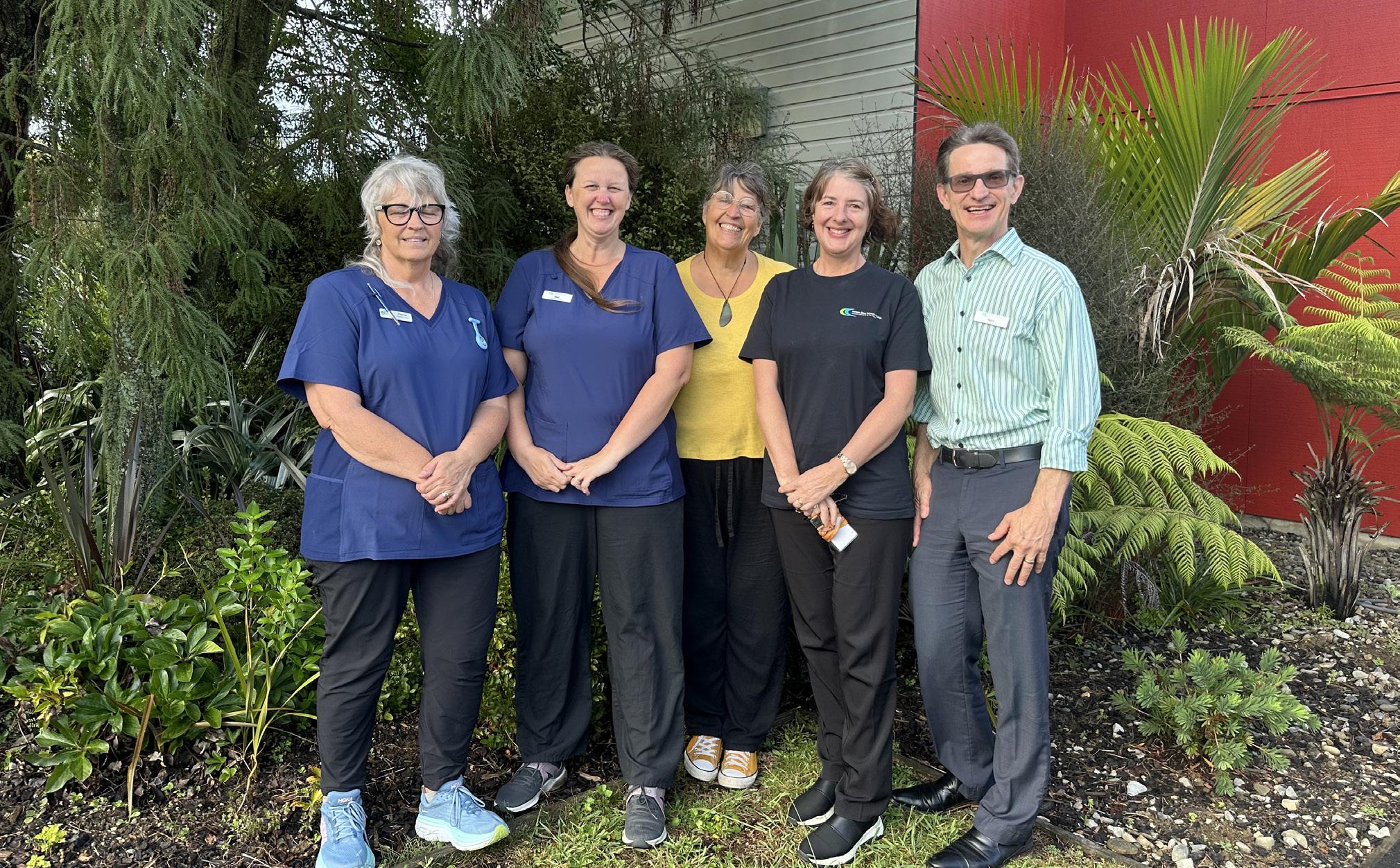
By Sahra Ahmed, Pegasus Health Refugee Health Clinical Lead
According to Glaucoma New Zealand (Glaucoma NZ), glaucoma is the leading cause of preventable blindness in New Zealand and the second leading cause of blindness globally (World Health Organisation).
Glaucoma is a chronic, progressive, and irreversible eye disease caused by damage to the optic nerve due to increased intraocular pressure (IOP). If untreated, it can lead to visual field loss, causing significant disturbance and undesirable outcomes (John Hopkins Medicine).
I was diagnosed with Primary OpenAngle Glaucoma (POAG) with a pretreatment intraocular pressure of 23mm Hg in both eyes. As a nurse, I knew about glaucoma but had not paid much attention to it. I associated it with much older adults. Receiving the diagnosis was life-changing, bringing a mix of emotions—shock, fear, and eventual acceptance.
Early last year, I went for my regular eye check which was overdue because of COVID and the general busyness of life. I scheduled an appointment with a new optometrist and this decision proved to be one of the best and most timely choices I ever made. The optometrist conducted a thorough examination and urgently referred me to an eye specialist.
Looking back, I had some warning signs—blurriness in my peripheral vision and occasional intense eye pain—but I dismissed them as part
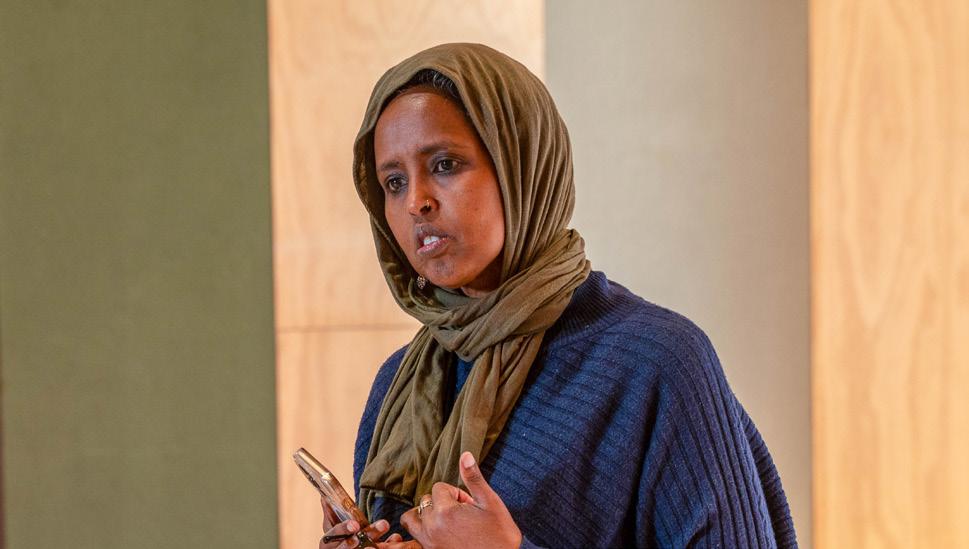
of the natural ageing process. I also had misplaced confidence that routine checkups would detect any issues early. Unfortunately, despite my family history of glaucoma, I was not recalled for a follow-up as recommended, leading to a delayed diagnosis.
Familial and Genetic Aspects.
The familial aspect of POAG has been acknowledged for many years. Studies suggest that up to 50% of POAG patients have a family history of the condition (Tielsch et al., 1994). In a population-based study in the Netherlands, first-degree relatives of affected individuals had a 22% risk of developing the condition.
My family history includes multiple cases of blindness due to glaucoma. My maternal grandmother, her son, her sister, and her brother all lost their eyesight due to late diagnosis and lack of access to timely healthcare. In my home country of Somalia, studies have shown an increasing prevalence of POAG with age, with rates rising from 6.8% among 50-60-year-olds to 12.3% among those aged 80-90.
Emotional and Practical Adjustments.
Initially, I was devastated. I feared losing my independence and struggled to find adequate support to navigate my diagnosis. However, I chose to be pragmatic and take control of my health. I researched treatments, sought specialist advice, and made lifestyle adjustments, such as reducing caffeine intake and avoiding activities that strain my eyes.
Following my diagnosis, I became acutely aware of how integral sight is to our identity and wellbeing. I also noticed the many ways language incorporates vision metaphors, such as “I see your point” or “blind as a bat.” My native language, Somali, also uses sight as a powerful metaphor for love and trust, reinforcing the deep connection between vision and human experience.
In Somali someone may say “walaahi indhahayga waan kaa jecellahay” which means I swear to God, I love you more than my eyes not only in a
romantic way, but to say you mean a lot to me.
Another Somali way of saying is” Indhaha Allah iga tuuro hadaan been kuu sheego” which translates as “may Allah take away my sight if I lie to you.”
Social and Economic Impact. Vision impairment significantly affects quality of life, employment opportunities, and mental health. Studies indicate that adults with vision loss experience higher rates of depression, anxiety, and unemployment. Older adults with vision impairment are at increased risk of social isolation, falls, and early entry into care facilities. (World Health Organization (WHO))
Globally, vision impairment carries an enormous financial burden, with an estimated annual productivity loss of USD 411 billion (WHO). In New Zealand, vision loss costs an estimated NZD 3.74 billion per year, and this burden is expected to grow as the population increases (Eye Health
Language is filled with references to vision. It’s a reminder of how much our eyes—and our ability to see—shape both our conversations and our lives.
Somali sayings:
Walaahi indhahayga waan kaa jecelyahay.
A term of endearment for a friend or family member meaning I swear to God, I love you more than my eyes.
Indhaha Allah iga tuuro hadaan been kuu sheego.
May Allah take away my sight if I lie to you.
English sayings:
A “vision” for the future.
We’ll keep an “eye” on it.
Something may be “insightful” or it may be “short-sighted”.
I “see” your point.
I’m “blind” as a bat.
“See” you later.
Hindsight is 20/20.
A sight for sore eyes.
Aotearoa).
“Timely and equitable access to eye healthcare services for all New Zealand residents, regardless of postcode, ethnicity or income, to eliminate avoidable blindness.”
- The Royal Australian and New Zealand College of Ophthalmologist (RANZCO)
As a health professional and someone who advocates for equity and accessibility of services every day, it is the first time I had some understanding of what it is like to have a disability, including hidden disability. I see my visually impaired colleague navigating in and around the office and the challenges he faces. I have noticed that pavements are often uneven, doors are hard to open, and people drive so close to the edge of the traffic light. I have noticed more visually impaired people than ever; they are everywhere, trying to cross the roads and move around in their typical day, and I thought that would be me soon!
Despite living in a developed country, access to timely and affordable eye care remains a challenge. Private specialist consultations cost between $600 and $1,000, making them inaccessible to many. Public healthcare delays and a shortage of ophthalmologists further exacerbate inequities in access.
I do not have health insurance like many people in New Zealand, and I am not sure how long I can sustain the cost of seeing a specialist every four to six months, which ranges from $600-$1000 just for follow-ups.
Private health insurance has limitations, such as exclusions, copayments, or limited coverage. This can create a situation where people
must come up with extra money to cover the cost, and if they cannot, the disease progresses faster, resulting in loss of vision.
Additional barriers include language difficulties for migrants and former refugees, lack of awareness about glaucoma, and geographical challenges faced by rural populations. Māori and Pasifika communities are underrepresented in glaucoma, diagnoses, possibly due to systemic barriers to healthcare access.
(RANZCO)
I underwent Selective Laser Trabeculoplasty (SLT), a laser treatment to reduce eye pressure, which was successful. I am relieved to have delayed the need for lifelong eye drops, though I remain vigilant about my condition.
We need increased public education and awareness of glaucoma. Healthcare professionals should receive more training, and targeted screening should be provided for atrisk populations. Resources available in different languages would ensure that non-English speakers have access to essential information.
I firmly believe that healthcare is a human right. New Zealand must strive for universal, accessible, and equitable eye care to prevent avoidable blindness and improve outcomes for all residents, regardless of socioeconomic status.
By sharing my journey, I hope to raise awareness about glaucoma and encourage others to prioritise their eye health. Early detection and treatment are key to preserving vision, and no one should have to navigate this journey alone.
A full list of references is available on our website
If you have feedback on this issue or would like to share a suggestion for a story in our next issue please contact communication@pegasus.health.nz.
Tōtara Pegasus Health Pānui is produced by the Communications Team at Pegasus Health. Content within Tōtara Pegasus Health Pānui has been included with the approval of content providers.
If you wish to reproduce or alter and transmit any of the information or images contained within, please contact communication@pegasus.org.nz

